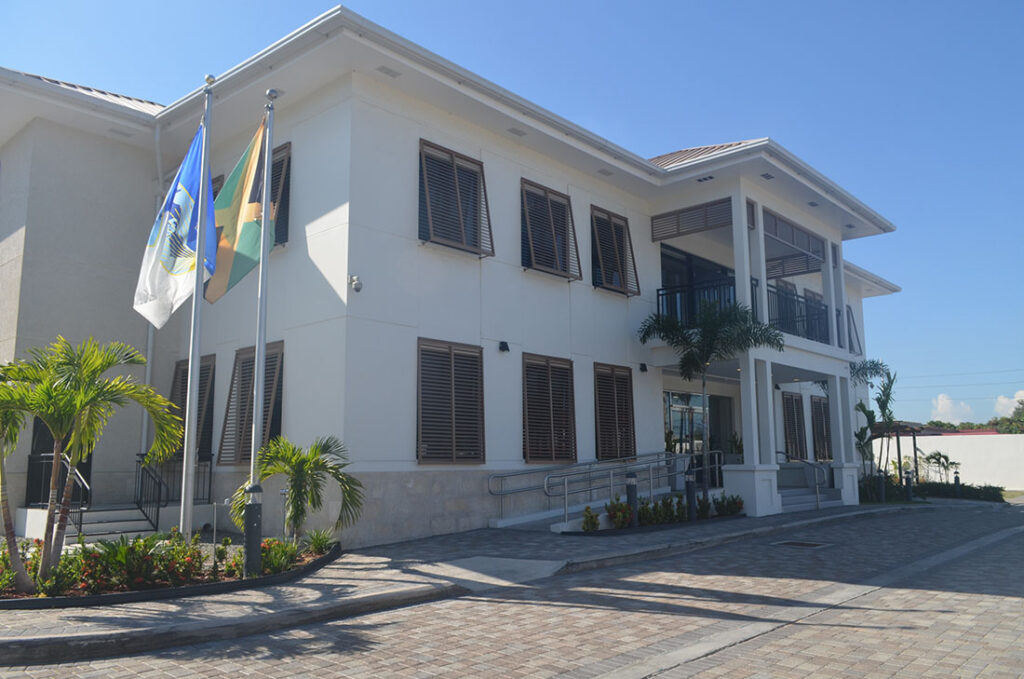

While businesses face several challenges in accessing financing in Jamaica, the Inter-American Development Bank (IDB) has identified opportunities to alleviate the bottleneck that has left many entrepreneurs scratching their heads.
IDB strategy and innovation lead officer Terry-Ann Segree, addressing participants of the EmpowerJA workshop, said, “There are promising solutions that we’ve seen work in Jamaica and across the region, and the panels today will share insights on some of these and other pathways that SMEs can use to increase their access to finance.”
The EmpowerJA workshop, jointly hosted by the IDB and the Private Sector Organisation of Jamaica (PSOJ) was held at the Jamaica Pegasus in New Kingston on March 18 to help businesses overcome financial barriers, embrace new opportunities, and thrive in an evolving economy.
According to the IDB and PSOJ, “Access to finance remains a critical factor in driving economic growth and supporting the development of micro, small, and medium-sized enterprises (MSMEs) in Jamaica. Despite ongoing efforts, many MSMEs face significant barriers to accessing capital, including lack of financial literacy, inadequate collateral, poor financial management, and limited knowledge of available funding mechanisms.”
Segree highlighted to some challenges MSMEs face by citing statistical data.
One IDB report, for example, titled ‘Financial Access for Firms: Jamaica’s Challenges and Opportunities’, revealed that 40 per cent of Jamaican firms identify barriers to credit access as a major constraint to their operations and growth.

Across the Caribbean, over 50 per cent of women-owned or women-led companies reported that financial costs, such as interest rates and or collateral, were either a major or a very severe obstacle to growth while firms led by women in Jamaica report the largest disparity relative to others in terms of barriers to access from the high cost of credit.
“These are not just statistics—they represent real obstacles that prevent businesses from investing in new equipment, hiring additional staff, expanding operations, or developing new products and services. They represent missed opportunities for growth and job creation,” Segree emphasised.
“This is why, for the IDB, improving access to finance is critical,” she continued.
The IDB respresentative explained that businesses equipped with the right tools and access to finance are better at responding to economic shocks, investing in technology and innovating, and scaling their operations. Furthermore, on a national level, improved financial inclusion correlates with higher growth in output, reduced income inequality, and increased resilience to economic downturns.
She added that, looking beyond the statistics, there’s a human element to consider.
“Behind every business seeking financing is an entrepreneur with a vision, employees supporting their families, and communities benefiting from local economic activity,” Segree stated, adding: “Financial inclusion is ultimately about creating opportunities for people to improve their lives.”
Pointing to solutions, she said the workshop would highlight non-traditional financing options as alternatives to conventional bank loans. Such options, including angel investing and venture capital, may be better suited to different business models and growth stages.

Moreover, Segree outlined, “There are other interventions that can help to address challenges with accessing credit, including further modernisation of credit infrastructure; specialised financial products designed for SME realities that can bridge significant gaps; [and] building [the] financial capability among SMEs.”
Additionally she shared inteventions such as working with more intermediary organisations through credit guarantee schemes to help de-risk SME lending, as well as tailored financial products for underserved segments—such as women entrepreneurs, rural businesses, and early-stage ventures— that can address unique barriers these groups face.
“The IDB Group recognises these challenges and the opportunities that exist, which is why we have made expanding access to finance a strategic priority in Jamaica. Through our various windows—IDB, IDB Invest, and IDB Lab—we offer a comprehensive approach to addressing the financing gap,” Segree said.
IDB Invest works directly with financial institutions, and private sector groups, to develop products tailored to SME needs, while also providing direct financing to larger projects that can create supply chain opportunities for smaller businesses. IDB Lab serves as our innovation laboratory, testing new models for business financing and building ecosystems.

While the IDB continues to work with the Government of Jamaica on regulatory reforms to create a better lending environment for lending, and through partnerships with the Development Bank of Jamaica, it also collaborates with entities like the PSOJ to build capacity and networks in the private sector.
On this note, Segree reiterated that accessing finance is a major barrier to business, but underscored the IDB’s dedication to partnerships with financial institutions, government and regulators to create improved frameworks. It also works with business support organisations in providing technical assistance and helping businesses to adopt financial management best practices.
“The bank is committed to this collaborative approach, and to supporting your journey toward improved financial access. I encourage you to participate actively today, ask questions, share your experiences, and most importantly, connect with the resources and partners present here today,” she told participants at the EmpowerJA workshop.






Comments